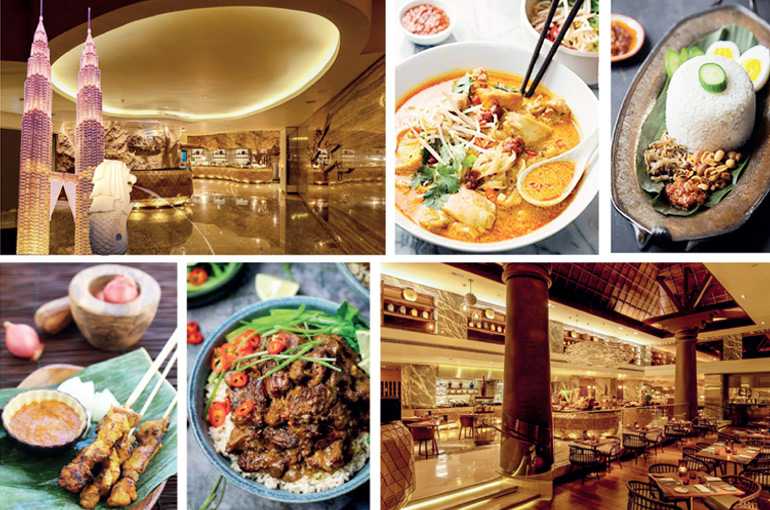Thursday Feb 19, 2026
Thursday Feb 19, 2026
Thursday, 17 September 2020 00:48 - - {{hitsCtrl.values.hits}}

Graze Kitchen is dishing out a gastronomic feast this Sunday, 20 September. It is food for the soul and knowledge for the mind. Experience the cultural differences between two much loved cuisines; Singaporean and Malaysian whilst you tuck into some authentic dishes from these two countries.
Due to their proximity to each other and because of the cross-over cultural influences, it is believed that food in Singapore and Malaysia is the same. Both Singaporean and Malaysian cuisine take influence from Chinese, Indian, Malay and Peranakan cultures, however they have their own regional differences; from Chinese dialect groups, Malay regions and more. For example, the Chinese cuisine is strongly influenced by Hokkien and Teochew traditions in Singapore, whereas Cantonese traditions play a bigger role in Malaysia.
The best way to see the differences between Malaysian and Singaporean food is by tasting some of the famous dishes found on both sides of the Johor Strait. Chicken Rice is widely considered Singapore’s most famous dish and one of the city’s national staples. In Singapore, a bowl of fragrant rice made using the chicken stock is served alongside a plate of sliced poached chicken breasts and a selection of condiments for adding to the rice, whilst in Malaysia, the chicken is served roasted or even in a BBQ or honey-style sauce. The rice differs as well, served as tightly packed rice balls with an array of soy and chilli sauces. The late Anthony Bourdain included it as one of his top meals to eat before you die!
The dish that best shows the culinary differences between the two nations is Curry Laksa, a popular spicy soup that consists a wide assortment of ingredients. In Singapore, it is sometimes named Katong Laksa, a thick coconut curry soup, and other ingredients include fish cakes, prawns, and a large serving of noodles. The Malay dish is Assam Laksa, sometimes called Penang Laksa; it is sour, and the soup base comprises tamarind and fish stock. An array of vegetables, ginger, fish slices and vermicelli are then added to complete the soup.
Nasi Lemak, literally ‘fat rice’, comprises coconut rice, prawn sambal, fried anchovies, peanuts, cucumber slices, and Ayam Rending. There might be variations with regards to the accompaniments, but the rice, cucumber, and peanuts are pretty much staple. Beef Rendang: tender meat slow cooked in a sauce over a course of several days claimed international fame when Gordon Ramsay visited Malaysia to learn how to make it.
The popular Hainanese chicken rice from Singapore is braised silky chicken, served on a bed of rice that has been cooked with chicken broth to deliver the ultimate chicken flavour and Singapore’s Char siew meats, BBQ red pork and roasted pork belly in a thick sauce is also on the menu.
Yet another Malaysian fav, Satay at first glance, appears to be nothing beyond slightly charred, skewered meat. But good satay is juicy and flavourful, especially when it has been fanned lovingly over a charcoal grill, and comes in chicken, and beef, served with the pungent peanut sauce. The popular Fish Head curry with vegetables served with rice or bread, Lemang – rice mixed with vegetables in coconut milk, Rojak – fried dough fritter with fruits and veggies and Ikan bakar, marinated with sambal, wrapped in banana leaf and grilled will be a few of the vegetarian dishes that will be on the buffet.
What do you think; is there a considerable difference between the cuisines of these two countries? The best way to find out is to go over to Graze Kitchen this Sunday 20th for lunch, and try them for yourself! The lunch buffet is priced at Rs. 4,888 nett per person and will be on from 12 noon to 2:30 p.m.
Prior bookings are recommended by calling the F&B Reservations Desk on 2492492.